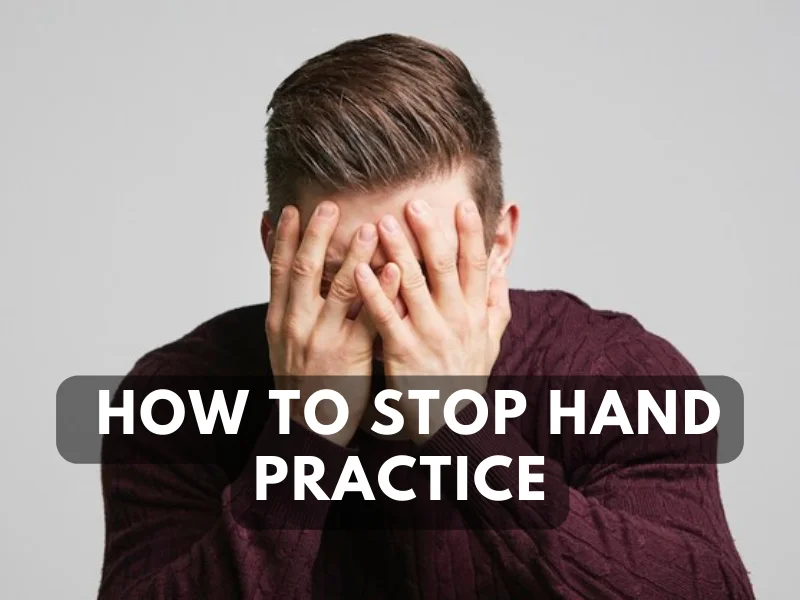How to Stop Hand Practice: Effective Strategies and Tips

Masturbation is a natural and common activity, but sometimes, it can become excessive and interfere with daily life and relationships. You’re not alone if you want to reduce or stop hand practice. Here are some effective strategies and tips to help you along your journey.
Why You Should Consider Reducing Hand Practice:
Deciding to reduce or stop hand practice isn’t about shame or guilt. It’s about seeking balance and ensuring that your habits support your well-being. For some, frequent Masturbation can lead to physical discomfort, emotional distress, or a decrease in productivity. By gaining control over this habit, you can foster a healthier, more balanced lifestyle and improve your sex life.
Furthermore, reducing hand practice can help you rediscover joy in other aspects of life. It can open time for new hobbies, deeper relationships, and personal growth. Remember, it’s about finding what works best for you and your well-being.
Understanding the Impact of Excessive Hand Practice:
Physical and Mental Health Effects:
Excessive hand practice can lead to various physical issues, such as irritation, soreness, or injury. Mentally, it might contribute to feelings of guilt, anxiety, or depression, mainly if it’s used as a coping mechanism for stress or loneliness.
When Does It Become a Problem?
Masturbation becomes problematic when it interferes with daily activities, relationships, or emotional health. If you find yourself prioritizing it over essential tasks, avoiding social interactions, or feeling compelled to masturbate to cope with negative emotions, it might be time to reconsider your habits.
Proven Methods to Avoid Masturbation:
1. Avoid Pornography:
One of the most effective ways to reduce the urge to masturbate is by avoiding pornography. Porn can be highly stimulating and make it harder to control your urges. Instead, focus on other activities that bring you joy and satisfaction.
2. Stay Active and Exercise Regularly:
Keeping active can significantly reduce your urge to masturbate. Exercise releases endorphins, which improve your mood and decrease the Desire For Sexual Release. Whether running, swimming, or yoga, find an activity you enjoy and make it a regular part of your routine.
3. Limit Alone Time:
Spending too much time alone can increase the temptation to masturbate. Try to stay socially active by spending time with friends or family. Engage in group activities or join clubs to keep yourself occupied and away from tempting situations.
4. Wear Extra Clothing at Home:
Wearing extra layers of clothing can be a simple yet effective barrier against the urge to masturbate. It makes it more challenging to access your genitals, giving you time to reconsider your actions.
5. Seek Professional Help:
If your masturbation habits are severely affecting your life, seeking help from a therapist or counsellor can be beneficial. Professionals can offer personalized strategies and support to help you overcome compulsive behaviours.
6. Meditate and Practice Mindfulness:
Meditation and mindfulness can help you become more aware of your thoughts and urges. By practising mindfulness, you can learn to observe your cravings without acting on them, leading to greater control over your impulses.
7. Find Healthy Distractions:
Engage in activities that keep your mind and body busy. Hobbies like painting, playing an instrument, or even gardening can serve as healthy distractions from the urge to masturbate.
8. Set Goals and Track Progress:
Setting goals and tracking progress can motivate you to stick to your commitment. Celebrate small victories and remind yourself why you want to reduce hand practice.
9. Look Towards Spiritual or Religious Guidance:
Some turn to spiritual or religious practices for strength and guidance. These practices offer a sense of purpose and community, helping one focus on one’s goals.
Related: How to Recover Weakness After Hand Practice.
Additional Tips to Leave Masturbation Habit:
here are some of the additional tips to stop hand practice. if you feel any sexual weakness you can visit Ajmal Dawakhana herbal store or contact us.
Develop Coping Strategies:
Developing effective coping strategies is crucial. Whether it’s through breathing exercises, journaling, or talking to a friend, having go-to methods to handle stress or boredom can prevent you from turning to Masturbation.
Stay Busy with Hobbies and Interests:
Diving into hobbies and interests can keep your mind occupied and reduce the urge to masturbate. Whether learning a new language, crafting, or hiking, engaging in meaningful activities can make a big difference.
Talk About Your Feelings with Trusted People:
Sharing your struggles with someone you trust can be incredibly liberating. They can offer support, advice, and a different perspective, helping you feel less isolated.
Conclusion:
Reducing or stopping hand practice is a personal decision requiring patience and self-compassion. By understanding the impacts, setting clear goals, and utilizing the strategies outlined above, you can take control of your habits and create a healthier, more balanced life. Remember, it’s all about progress, not perfection.
FAQs About Hand Practice and Its Effects:
Is Hand Practice Harmful?
Masturbation is generally considered safe and normal. However, it can be harmful when it becomes excessive and interferes with daily life. It’s all about moderation and balance.
Can It Affect Relationships?
Yes, excessive Masturbation can impact relationships. It might reduce your interest in sexual intimacy with your partner or create feelings of isolation. Communicating with your partner and seeking balance can help.
What Are the Signs of Compulsive Behavior?
Signs of compulsive behaviour include:
- Feeling unable to stop despite wanting to.
- Using it to cope with negative emotions.
- Letting it interfere with daily responsibilities or relationships.
What Are the Long-Term Benefits of Quitting Masturbation?
Quitting or reducing Masturbation can improve focus, improve physical health, enhance relationships, and enhance emotional stability. It allows you to redirect energy towards more fulfilling activities.
How Can I Control My Urge to Masturbate?
Controlling the urge involves recognizing triggers, staying busy, practising mindfulness, and seeking support from friends or professionals. Finding healthy outlets for stress and pleasure is critical.
What Are the Best Distractions to Avoid Masturbation?
The best distractions are those that fully engage your mind and body. Physical activities, creative hobbies, social interactions, and learning new skills are excellent ways to keep yourself occupied.
How to Leave Masturbation Habit Permanently?
Leaving the habit permanently involves a combination of strategies: avoiding triggers, setting goals, seeking support, and finding alternative ways to fulfil emotional and physical needs. Consistency and perseverance are essential.
How to Stop Masturbation Addiction?
Stopping masturbation addiction requires acknowledging the problem, seeking professional help, joining support groups, and implementing practical strategies to manage urges. Remember, recovery is a gradual process, and seeking help is a sign of strength.


